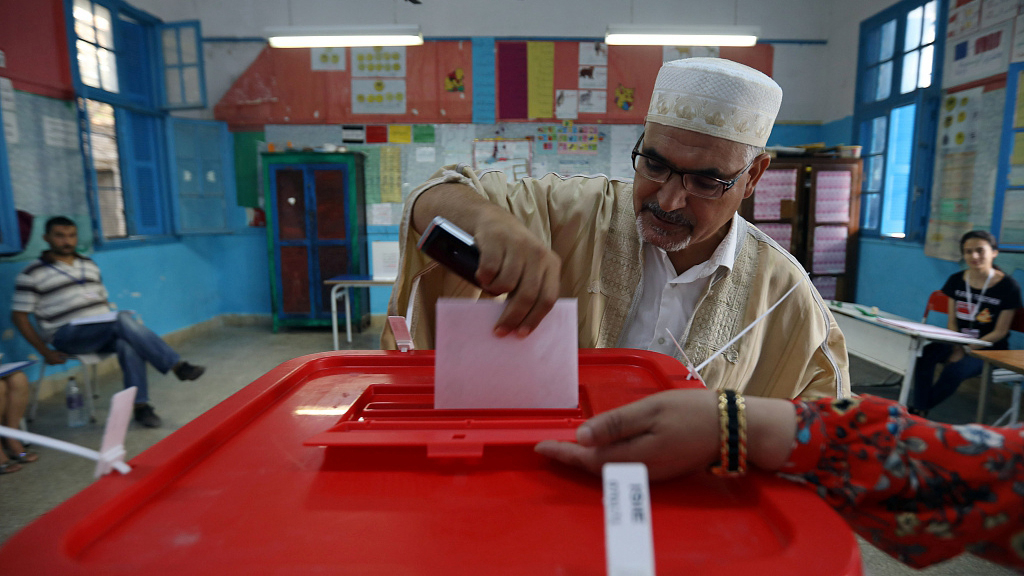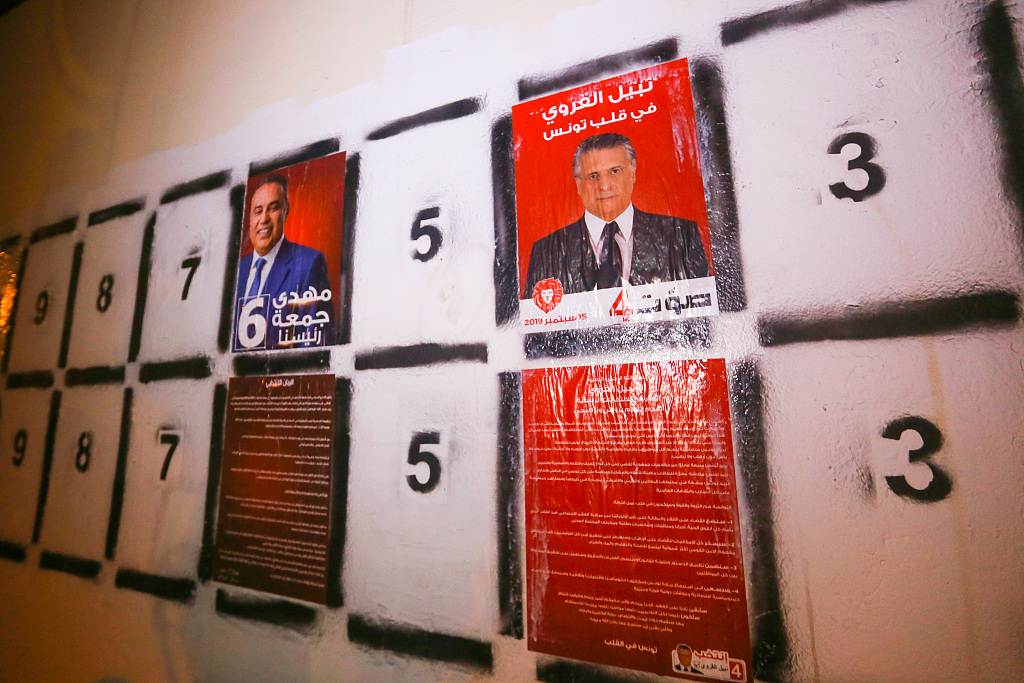

Two political outsiders said they believe they have advanced to the second round of Tunisia’s presidential election on Sunday, citing exit polls. But no official results have been announced in the vote to replace Beji Caid Essebsi, who died on July 25 at the age of 92.
A representative for detained media magnate Nabil Karoui said he scored "an impressive win," while conservative law professor Kais Saied, who was largely unknown before the election, said his performance marked "a new revolution."
Meanwhile, the moderate Islamist Ennahda party, a partner in recent coalition governments, said its count, to be announced at a news conference later, was different to that released in exit polls.
If confirmed, their success on Sunday would be a sharp rebuke to Tunisia’s established political powers after years of economic frustration.
The vote however, was marked by a low turnout. Only 45 percent of registered voters took part, compared to 63 percent in 2014, official figures showed.

Electoral leaflets of the candidates Mahdi Jomaa (L) and Nabil Karoui (R) are displayed in Tunis, Tunisia, September 2, 2019. /VCG Photo
Economic ills have dominated the election, with the country suffering from a 15 percent unemployment rate and a close to one-third rise in living costs since 2016.
Tunisia’s prime minister, two former prime ministers, a former president and the defense minister were also among the 26 candidates on the ballot.
The country's Independent High Authority for Elections said that preliminary results of the early presidential election will be announced on Tuesday.
If none of the candidates obtains an absolute majority of the votes, a second round will be held within two weeks after the announcement of results from the first round.
Tunisia's president has direct control over foreign and defense policy while most other portfolios are handled by a prime minister chosen by parliament.
Parliamentary elections will be held on October 6.
(With input from AFP, Reuters and Xinhua)

Copyright © 2018 CGTN. Beijing ICP prepared NO.16065310-3
Copyright © 2018 CGTN. Beijing ICP prepared NO.16065310-3